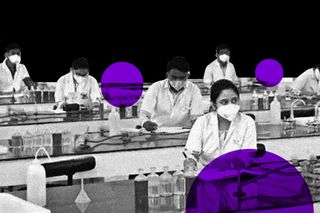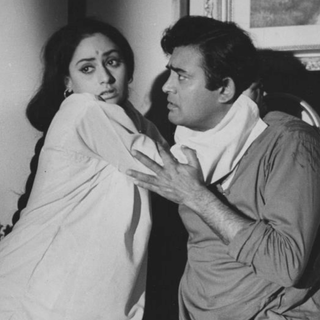
India’s STEM Students Do Not Gain Critical Thinking Skills Over Four Academic Years: Study
The study analyzed data from four countries renowned for their engineering expertise.

Science, Technology, Engineering and Mathematics (STEM) students in India, along with students in Russia and China, do not gain critical thinking skills over four years of higher education in comparison to STEM students in the U.S., a new study finds.
The findings analyze thousands of engineering students across the four countries and track their abilities in physics, mathematics, and critical thinking.
Focusing on critical thinking skills, the study indicated that students of all three countries perform lower than the students in the U.S. “We found that, as the students progress in their studies, their critical thinking skills remain approximately the same in Russia and India, but significantly decrease in China. On the contrary, American students show improvement,” said Igor Chirikov, lead researcher of the study in a press release.
This study was conducted by Stanford University in partnership with HSE University Moscow, the Educational Testing Service, and universities in China and India. Published in the journal Nature Human Behaviour, the study surveyed more than 30,000 undergraduate students across the four countries to measure their skill development across three periods: when they entered university, at the end of their second year, and the end of their studies.
The study found that India initially performed the lowest among all four countries — it was only after two years of education that Indian students caught up with Russian students in mathematics. Upon entering university, Russian students outperformed Indian students while performing lower than Chinese students.
Information technology has proliferated worldwide in the economic, social, and political avenues and has led to an ever-increasing demand for STEM professionals worldwide. Each of the aforementioned countries is known for their expertise in engineering and science fields, and it is China, India, and Russia which see their students undergo the most migration. However, despite rapid increases in the quantity of science and tech graduates, little is known about the quality of education students receive and how well this education can be applied for practical purposes.
Related on The Swaddle:
Moreover, critical thinking has long been established as a skill that’s crucial for the sustenance of STEM fields. It allows researchers — and by extension, everyone — to become confident analytical thinkers who can interrogate sources and evaluate claims, helping them in their future studies, lives, and careers. Within the framework of the scientific method and thinking, critical thinking strengthens conclusions and enables people to make decisions or judgments after reflection, thus reducing bias. An American survey found that a resounding 93% of respondents believe that “a demonstrated capacity to think critically, communicate clearly, and solve complex problems is more important than an undergraduate major.”
In India, on average, more than 1.5 million students get their degree in engineering every year. Around 880,000 students enrolled in computer science engineering in 2019 itself. In fact, one-sixth of all Indian students choose to pursue engineering after finishing their schooling. But due to the lack of skills required to perform technical jobs, less than 20% get employment in their field.
And while the study shows that India does well in terms of academic knowledge that students gain, the results indicate that engineering schools rely on basic technical curriculum without the training upgrades required in the current industry scenario. A lot of engineering colleges suffer a skill gap that plays into their students’ lack of employability. Engineering colleges have a 33:1 pupil to teacher ratio (PTR), while the AICTE-recommended PTR is 20:1 — which means India is short of 76,000 teachers on average. This leads to these schools falling behind on technical skills like computer programming, logical ability, quantitative ability, and even communication.
According to the Annual Employability Survey 2019 report by Aspiring Minds, 80% of Indian engineers are not fit for a job in the knowledge economy. This points to the conclusion that in the process of rapid expansion of institutions, the consequential tradeoff has been in the quality of education. There is a gap between what is taught and what might be practically needed, as is found out by the researchers in this study. It stands so huge that a 2015 study found that every year, Indian students spend $7 billion (around ₹45,000 crores) on foreign education because of the “sub-standard” quality of higher education in the country.
India also has more than 6,200 Engineering and Technology Institutions. But despite this enormous amount of higher education institutes running in the country, three global studies have put it second-to-last on the list of countries excelling in higher education.
The findings assume importance in light of rapidly changing technologies — it is not only vital to have a firm grasp of the area of study, scientists say, but also of skills that help students apply their knowledge practically.
Satviki Sanjay is an editorial intern at The Swaddle. She's currently studying philosophy at Miranda House. When not studying, she can be found writing about gender, internet culture, sexuality, technology, and mental health. She loves talking to people, and you can always find her on Instagram @satvikii.
Related


Woe Is Me! “Is It Consensual Sex If He Keeps Asking Till I Say Yes?”
